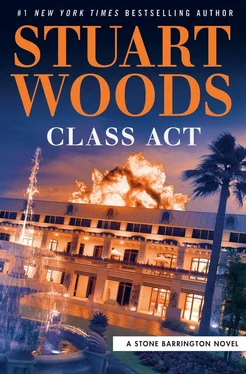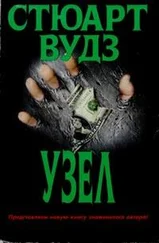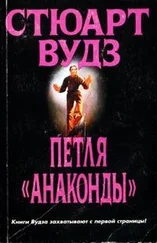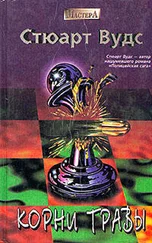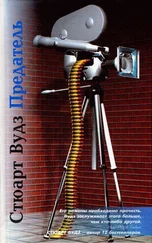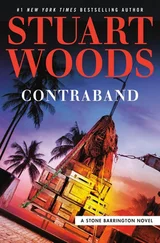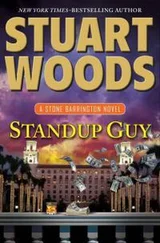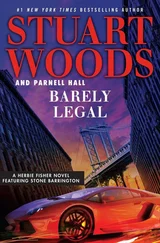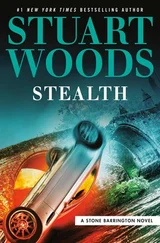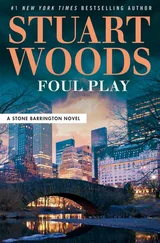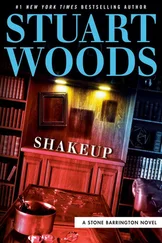Mickey went to the Suburban, got out the rifle case, unzipped it, and shook out the weapon. He popped the magazine and began loading the cartridges. There was an extra magazine, but he reckoned he wouldn’t need that. The boat was chugging up the sound at, maybe, six or seven knots. He walked to the boulder by the pine tree and settled the rifle into a notch along the top. He noted that the wind was shifting to the east and freshening, and its skipper cheated it into the shore, where the wind was lighter.
Mickey began to sight in on his target.
Mickey trained his sights on the spot where the skipper would drive the boat. He could see the man through the windshield, talking to a young woman. He swung his aim to the right and drew a bead on a lobster pot buoy, then squeezed off a round. He was pleased with how quiet the rifle was with the silencer, and he saw the bullet splash a foot ahead of the buoy.
The wind came up a bit more, and Mickey adjusted his sights: he hit the pot squarely, and at that moment, the helmsman cut back the power and slowed the boat. He said something to the woman, and she began moving aft. He hoped they hadn’t seen the hit on the buoy.
Now he could see the couple, who were sitting all the way aft, on a sofa that curved around the stern, making for an easy pick-off. Then the woman came onto the afterdeck, holding blankets in her arms. The man waved her off, then escorted his wife off the afterdeck and into the main cabin. They had gotten chilly, it seemed. Shit.
Now his shot was harder to make. The sun reflected off the glass windows of the main cabin, distorting the images of whoever was inside. He could see movement, but he couldn’t be sure which person was Fratelli or his wife or a crew member. Then, for just a moment, the sun’s angle changed, and he had a clear view of the man.
He resighted, moving the crosshairs to the center of the man’s chest, then the sight picture went blank. He lifted his head from the stock of the rifle and looked at the yacht. The crew woman had pulled down a shade in the cabin, and she pulled down another as he watched. He had no picture and no shot.
Mickey looked up and down the sound wondering where they would turn back for the trip down the sound. Wherever it was, he figured, he would have no shot. Oh, well. He removed the magazine and racked the slide, ejecting the round in the chamber, then he looked at his watch. It was one o’clock, and that was the time his flight left. He heard a noise and saw the puddle jumper clear the mountain across the sound, then turn to the south. It was the only flight for the rest of the day. How could he have gotten it so wrong?
He got into the car and pulled out his cell phone, got a signal, and did a search for aircraft charters. He found a flight school at Bar Harbor Airport that also advertised charters. He called the number and got the manager on the line.
“What can I do you for?” a man with a Mainer accent said.
“Have you got something to charter that can fly me to Teterboro, New Jersey?”
“When?”
“Right away.”
“Just a minute.” There were paper-shuffling noises. “I’ve got a Baron.”
“What’s a Baron?”
“A twin-engine Beechcraft, an excellent airplane. I’d suggest flying to Caldwell, New Jersey, about ten miles west of Teterboro. Nice little airport there and our route would keep us out of all the corporate stuff landing and taking off at Teterboro.”
“How long a flight?”
“About two, two and a half hours. It’s quite a comfortable airplane. How many people?”
“Just me.”
“Any luggage?”
“Just a rifle case.”
“As long as I hold on to the ammo.” He offered a price, they haggled, then made the deal.
“I’ll be there in about fifteen, twenty minutes,” Mickey said. “I have to turn in my rental car at the terminal.”
“I’ll taxi around and wait for you there. My tail number is November 123 Tango Foxtrot.”
“See you then.” Mickey started the car and turned it around. He saw the motor yacht making its turn, too, heading back down the sound. He had been right; he wouldn’t have had a shot. He drove back to the airport, handed in the car, then walked out to the ramp, where a twin had just shut down its engines. The tail number was the right one.
He walked out, shook the pilot’s hand, and, at his invitation, stowed the rifle in the forward luggage compartment, and the ammo with it.
The pilot did a brief walk-around, then Mickey hopped into the rear compartment and made himself comfortable. Ten minutes later, they were lifting off.
The winds were favorable at their altitude, and they made it in a little more than two hours. The pilot had called ahead for a car and driver.
It was after five, and in rush-hour traffic, the drive to Brooklyn took almost as long as the flight from Maine. He called his mother.
“Where are you, Mickey? Are you going to make dinner?”
“I’m in a car, on the way home. What time is our table?”
“Eight o’clock, at Peter Luger.”
The best steak house in the city, and one of the most expensive. Dinner was going to be upwards of two hundred dollars.
“Great! Love the place. I need to change clothes. Unlock the door, will you?”
“Already done.”
“See you at seven-forty-five, out front.” He hung up. “You want to drive us to dinner?” he asked the driver.
“Sure, but I’ll have to drop you. I’ve got another booking at eight-thirty.”
“Done.” Mickey settled back in the seat and explored his options. There weren’t many.
Stone was wrapping up his day when Joan buzzed. “Will you accept a call from the president of the United States?” she asked.
“Oh, all right.”
“I knew you’d be excited.”
There was a click. “Stone?” Holly said brightly.
“One and the same. Where are you?”
“In New York, as it happens. Dinner tonight? I’m sorry I couldn’t give you more notice, but I was locked into the UN all day.”
“You mean dine out in public, like in a restaurant?”
“Sort of. I’ve booked a private dining room at Peter Luger. I’m dying for a steak.”
“Is there a bed in that room?”
“I’ve got that all worked out,” she said. “You’re sleeping at the Carlyle, so bring a change of socks.”
“Will do.”
“Eightish,” she said. “We’ll arrive in separate cars.” She hung up.
Stone hung up, too. The thing with the cars was always a problem. If they arrived anywhere together, the paparazzi were waiting for them when they left. On departure, Holly went first, taking the crowd with her, so Stone could get to his car unmolested.
When Mickey got home he asked the driver to wait and take them to the restaurant. His key worked. He showered, dressed in his best suit, and was waiting for Louise at the front door, having robbed his secret stash of some more money.
At the restaurant they were seated at her favorite table; a Rob Roy was brought for her and a single malt Scotch for him.
“So,” she said, “how was your business day?”
“It went well. I had to fly to Maine to see a client.”
“How much did that cost?”
“He paid. The yield here could be great.”
“How soon?”
“A week or two.”
“A toast to income,” Louise said, raising her glass.
“I’m all for that,” Mickey said, sipping his Scotch. He ordered the porterhouse for two, and they had another drink.
“Trying to soften me up?” she asked.
“Trying to relax you. You deserve it.”
“God knows I do.”
Stone got to the restaurant first and was shown to the private room. As the door closed, he caught a glimpse of the restaurant floor and Michael O’Brien seated across from an older, attractive woman. That must be the mother, he thought.
Читать дальше
